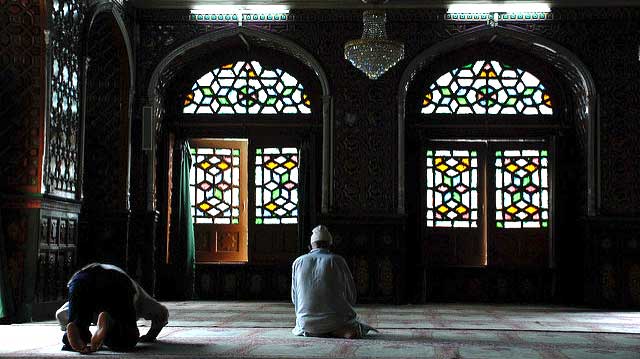
By Claudia Marie Huynh | mOppenheim Media
Islamophobia has proven to be one of the most pressing issues in today’s society since the September 11, 2001 terrorist attacks. Based on a 2011 study, 82% of Muslim-Americans felt “extremely unsafe” after the terrorist attack, and researchers later found that the majority of those who participated in the study developed PTSD as a result of the harassment, hate crimes, and verbal abuse they endured.
According to a review from the Boston University School of Medicine, researchers have found that experiencing direct and indirect prejudice on a regular basis – whether it is through workplace discrimination or blatant insults – can increase the risk of developing mental disorders, such as depression and anxiety. The review highlights that Arab Muslims experience more acculturation stress than Arab Christians in general, and post-9/11 discrimination correlates with depression and anxiety symptoms. This further demonstrates the bias Muslims might encounter resulting from fear of “the other,” which the report defines as “perceived threats of ‘the enemy within’ that contribute to the marginalization of Muslims by the surrounding society.” The concept of “the other” is also highlighted in multiple cases of hateful acts and in Islamophobic legislation, according to a 2016 report published by the Council on American-Islamic Relations. The report noted that since its publication, anti-Islam bills became law in ten states, and there were 78 reported incidents where mosques were targeted in 2015.
Another study published by the Psychology Benefits Society argues that people who routinely experience harassment and hate crimes can internalize the abuse, and subsequently feel a need to “discard their religious identifiers (e.g., the hijab or headscarf for Muslim women, the turban for Sikh men) or cease attendance at their places of worship.”
“The indirect impact of Islamophobia on all minority and marginalized communities is that they feel their position in this country and thereby their rights are precarious,” the study reads.
“In addition, the impact on larger society is that justice becomes irrelevant.” The consequences of Islamophobia reinforce feelings of alienation and separation from the rest of society, which could exacerbate feelings of depression and anxiety.
The review from the Boston School of Medicine also indicates that in addition to coping with harassment in society, a lack of general knowledge of Islam within the medical field prevents Muslims from receiving appropriate healthcare. Reports on health issues among minority groups exclude Muslim-specific data because the U.S. census does not address religious affiliation. Also, “faith-blind” health policies create obstacles for Muslim families to gain access to culturally appropriate healthcare. Many physicians are not fully aware of Muslim culture – such as long fasts and birth customs – simply because there is minimal medical research in respect to Islam. This can be dangerous if doctors provide uninformed nutritional advice or care for reproductive health.
The review also states that, based on studies on South Asian patients, people have expressed “consistent patient dissatisfaction” due to minimal accommodations for religious dietary needs and insufficient language services in clinics. Patients have reported that they feel a need to “fit in” to a space that excludes them.
In lieu of the current political climate, organizations and advocacy groups across the country are taking the necessary steps to protect Muslim rights. These groups include Muslim Advocates, a legal advocacy organization that takes on lawsuits challenging anti-Muslim discrimination and hate crimes, and the Islamic Networks Group, a nonprofit that aims to spread awareness and educate the public about Islam.
